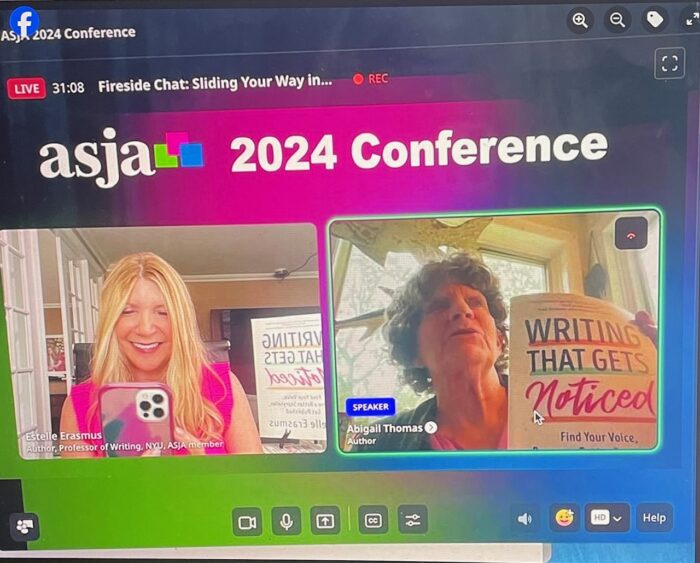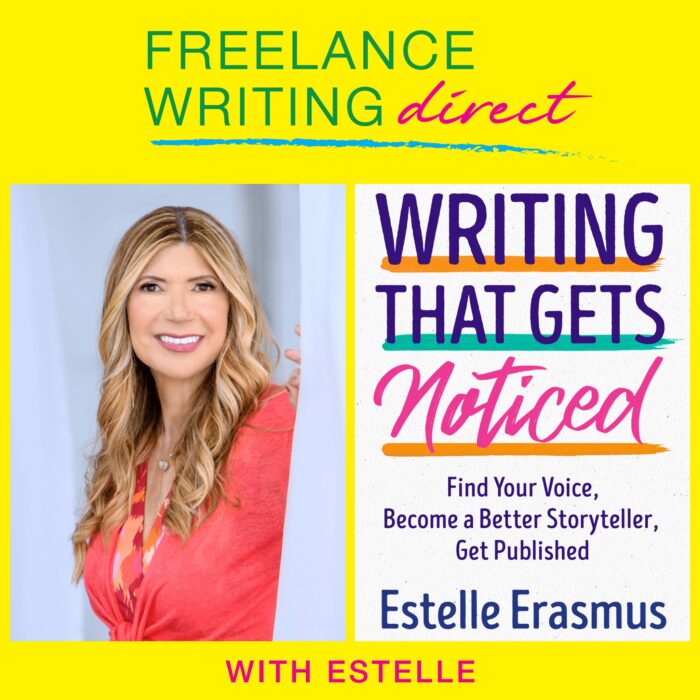
Because it’s important for us to tell our stories, and this is something that I will remember for the rest of my life, I wanted to share my story of our lively discussion.
Abby gave the example of when her daughter was diagnosed with breast cancer, and she was working on a book at the time, but had been blocked. Then her dog ran out of the house with her daughter’s cancer wig, and it became the side door through which Abby could enter into her story and finally find her way into writing about the cancer.
We talked about all the ways that people can get into story, and I shared some examples , including one I love from Salon, called My Year of Heroin and Acne, which starts:
“I got a pedicure each time I promised myself I’d stop doing heroin — which is to say, I got pedicures all summer. Pedicures gave me the false notion that I was about to get it together. I wasn’t functioning well — my brain cells were spent and my serotonin was depleted. Sitting in a chair, despondent, was all I felt like doing.”
The pedicure was not only the side door into a difficult story of addiction, it also became a through line throughout the essay.
This was the opening of a piece I wrote for Parents magazine: What Postpartum Rage Looked Like for One New Mom
Right after I delivered my daughter by emergency cesarean section, I remembered I needed to call the phone company over a mistake in the bill. Hopped up on pain medication and sobbing tears of frustration, I yelled at the customer service person, “You can’t do this to me. You are overcharging. It’s not fair!”
My husband heard my screaming from the hall, came into the room, and gently took the phone away. “I’m sorry, my wife just had a baby, and she’s exhausted,” he said. “We’ll get back to you at another time.”
“Estelle, you need to calm down,” he told me gently. It would not be the last time those words left his mouth. And now, I understand why.
The focus on the phone bill is the way into this story about how I dealt with postpartum rage and depression.
We shared other advice
I loved sharing a tip that I use in my teaching, which is called writing by starting in the middle. In literary terms it’s called “in media res”. This way you avoid all the unnecessary throat clearing that is usually a preamble for the inciting incident in a story.That’s why most people can cut out the first few parts of what they are writing.
Abby talked about a way to help writers who are blocked, with another term she coined called primal whine therapy (not wine, which she also likes). The idea is to write about your blocks and complain about what you can’t do or are finding difficult to do. Through the complaining, you just might find your way back into story.
One question that came up was if a writer should try to do memoir with a self-help or topical angle, and Abby’s answer made my heart sing. She said just to write, and not focus on the publishing aspect of it. I think that’s excellent advice, and I’m following it myself, as I write my memoir (which is really hard work).
Abby mentioned it is important to be ruthless with yourself when writing, and shared a quick 5 minute exercise asking the viewers to write about a time they lied to someone. She asked me to write one, too, and I did, about the time I used to pretend to be from another country when I was single and meeting men while traveling with my girlfriends.
I find Abby so inspirational as do so many, because she never finished college (that happens when you are kicked out for getting pregnant) and she didn’t publish her first piece until she was 50.
For more on Abigail Thomas check out episode #83 Writing Your Way Into An Engaging and Enthralling Story
Thank you so much Abby for this great discussion. And thank you everyone for joining us and to the leadership of ASJA, and ASJA president, Emily Paulsen.
Everyone, you can find Abby at her substack Abigail Thomas/What Comes Next? and her book Still Life at 80 comes out from Scribners in November.



Thank you, Estelle. We did have a ball!
It was so much fun, and I love speaking with you, Abby.